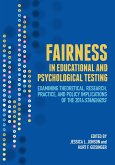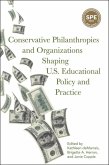This study examines the philosophical assumptions that inform educational policies in Jamaica and the extent to which the philosophical beliefs and positions of four ministers of education have influenced and impacted their articulation and implementation of educational policies during their tenure. A qualitative methodology was used to gather data through a purposive sample, which included four Ministers of Education who served over the period 1999-2018. The research explores patterns and themes in the perspectives, philosophical beliefs and policy emphases or learnings of the education ministers. The study found that there were areas of convergence among the views of the ministers, both in terms of their philosophical world views and policies, and on apprehensions and disappointments. The study also found that some of the beliefs and moral values of the ministers are aligned with societal beliefs and expectations. They are of the view that education is the catalyst for human capital development that will enable each individual to maximize his full potential. The major themes which emerged include:(a) the roles and responsibilities of parents in the education of their children (inclusive of financial responsibilities);(b) timely interventions to address the needs of students and the society;(c) equity;(d) the problem of political expediency;(e) the impact of external political pressure and global educational priorities on local policy making;(f) the lack of sustained progress despite billions of dollars of investment. This paper posits several recommendations, including government funding of schools based on evidence of need; greater public and private partnerships between school and various stakeholder groups; and more sustained policy positions across political administrations for improvements in the education system.
Dieser Download kann aus rechtlichen Gründen nur mit Rechnungsadresse in A, B, BG, CY, CZ, D, DK, EW, E, FIN, F, GR, HR, H, IRL, I, LT, L, LR, M, NL, PL, P, R, S, SLO, SK ausgeliefert werden.









